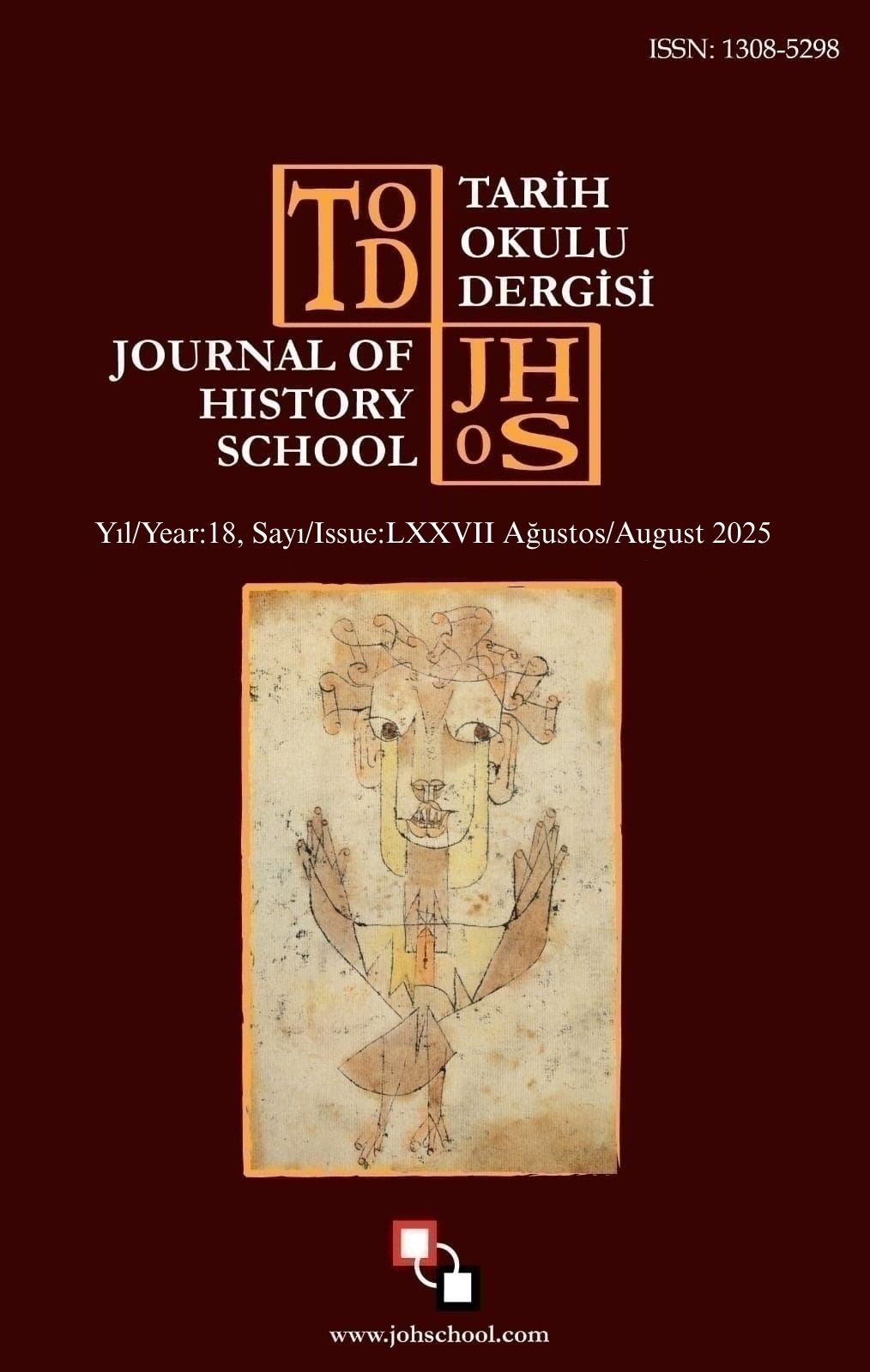Author :
Abstract
Bu araştırmanın amacı, farklı lise türlerinde öğrenim gören öğrencilerin görüşlerine göre öğrenci kulüplerinin etkililiğini değerlendirmektir. Araştırmada betimsel tarama ile nedensel karşılaştırma desenlerinden yararlanılmıştır. Araştırma örneklemi küme örnekleme yöntemiyle oluşturulmuştur. Araştırma, Batman il merkezindeki 2018– 2019 Eğitim-Öğretim yılı birinci döneminde okul türü farklı ortaöğretim kurumlarında (Anadolu, İmam-Hatip, Mesleki ve Teknik, Fen, Sosyal Bilimler, Spor, Güzel Sanatlar ve Proje Lisesi) öğrenim gören 1039 öğrenciyle gerçekleştirilmiştir. Araştırmada veri toplamak için literatür ve yönetmeliklerden faydalanılarak altı boyutu olan geçerli ve güvenilir sosyal etkinlik ölçeği geliştirilmiştir. Bulguların çözümlenmesinde betimsel istatistikler olan sıklık ile yüzdeliklerden yararlanılırken demografik değişkenlerle ölçek maddelerine verilen cevapların çaprazlaması yapılmıştır. Alt amaçların incelenmesinde sosyal etkinlik puan ortalamalarının karşılaştırılması için parametrik istatistik çözümleme tekniklerinden t-testi ve One Way Anova testlerinden faydalanılarak veriler analiz edilmiş ve yorumlanmıştır. Araştırma verileri araştırmacı tarafından geliştirilen ölçekle toplanmıştır. Verilerin analizi sonucunda, öğrencilerin öğrenci kulüplerine ilişkin “kulüp farkındalığı”, “kişisel gelişim”, “toplum hizmeti”, “demokrasi”, “sosyallik” ve “sorumluluk” boyutlarındaki görüşleri genel olarak “kararsızım” düzeyinde bulunmuştur. Araştırmada en yüksek ortalama değerinin “sosyallik” boyutunda en düşük ortalamanın ise “sorumluluk” boyutunda olduğu görülmüştür. Öte yandan, öğrencilerin, öğrenci kulüplerine ilişkin “kulüp farkındalığı”, “kişisel gelişim”, “toplum hizmeti”, “demokrasi”, “sosyallik” ve “sorumluluk” boyutlarındaki görüşleri; cinsiyet, kurum türü, okul türü, sınıf düzeyi ve kulübe üye oluş nedeni değişkenlerine göre anlamlı farklılık gösterdiği saptanmıştır.
Keywords
Abstract
This research aims to evaluate the effectiveness of student clubs according to the opinions of the different types of high school students. In the research, general and causal comparative survey designs were used. The research sample was formed by cluster sampling method. The research was conducted with 1039 studying in different secondary education institutions (Anatolian, İmam-Hatip, Vocational and Technical, Science, Social Sciences, Sports, Fine Art and Project High School) in the first semester of the 2018-2019 academic year in Batman city center. İn order to collect data in the study, a valid and reliable social activity scale with six dimensions was developed by utilizing the literatüre and regulations. İn the analysis of the findings, cyclicity and percentages, which are descriptive statistics, were used, while demographic variables and the answers given to the scale items were cross-referenced. İn examining the sub-objectives, the data were analyzed and interpreted by using T-test and One Way Anova tests, which are parametric statistical analysis techniques, to compare the mean social activity scores. Research data were collected with a scale developed by the researcher. As a result of the data analysis, the opinions of the student clubs in the dimensions of "club awareness", "personal development", "community service", "democracy", "sociality" and "responsibility" were generally found at the "indecisive" level. In the study, it was seen that the highest average value was in the "sociability" dimension and the lowest average was in the "responsibility" dimension. On the other hand, significant differences revealed according to the variables of gender, institution type, school type, class level and the reason for being a member of a club of the students in the dimensions of "club awareness", "personal development", "community service", "democracy", "sociality" and "responsibility".





